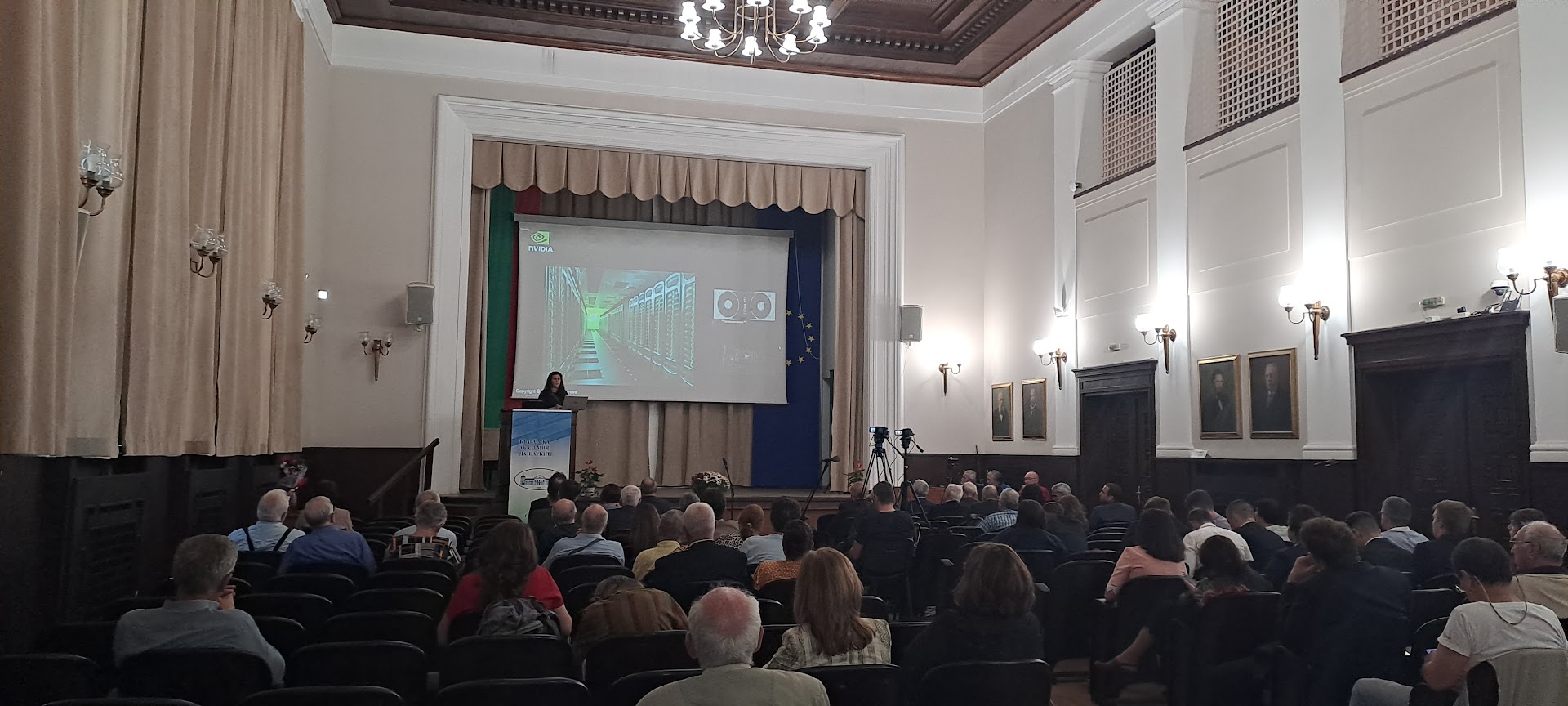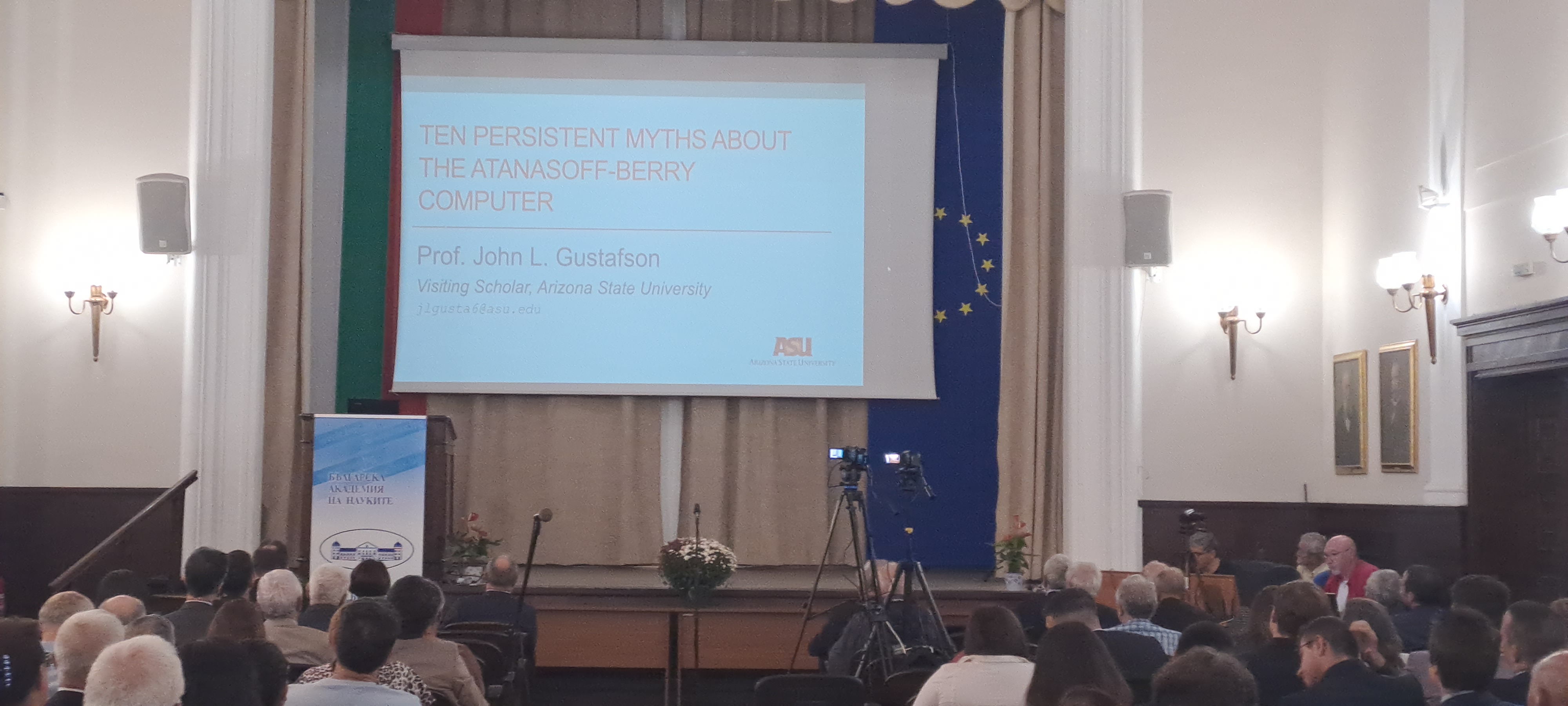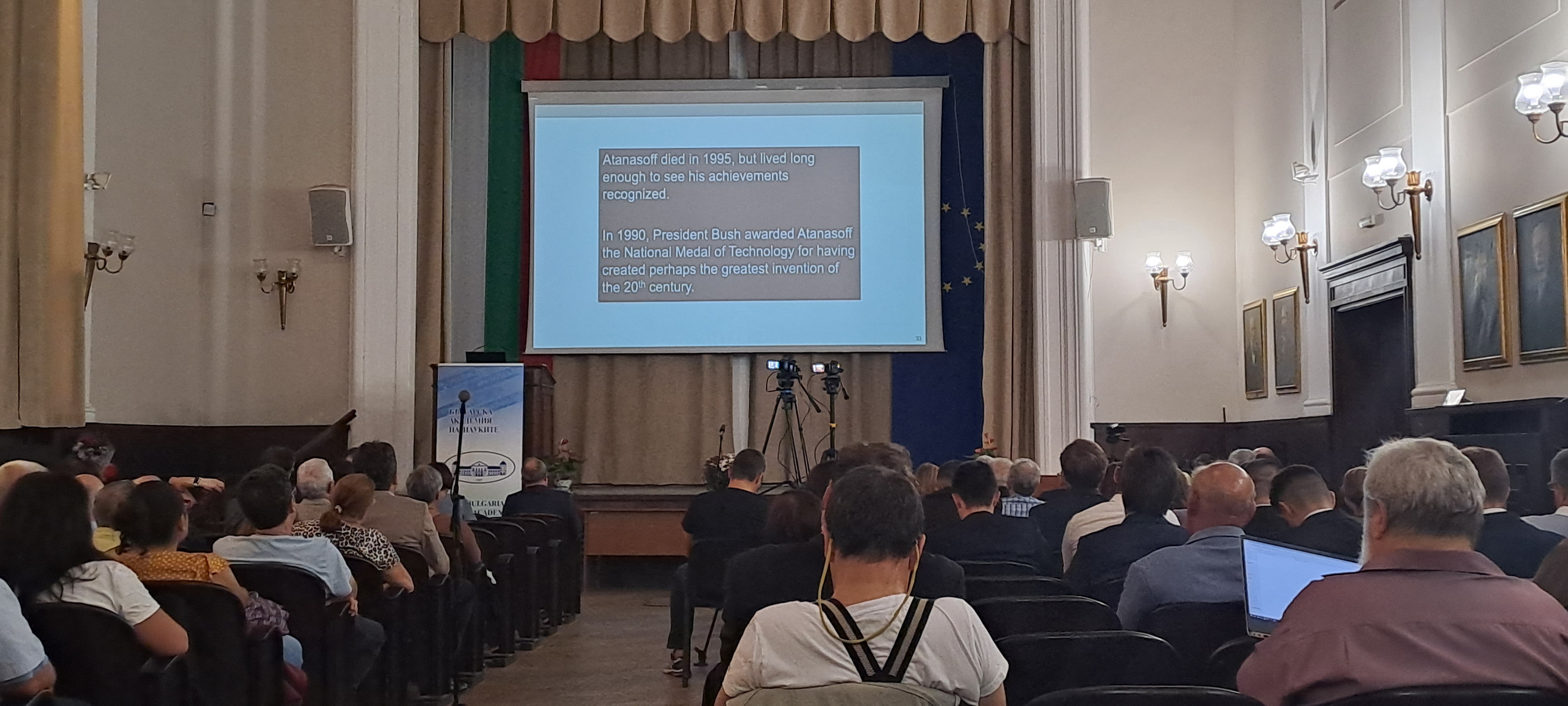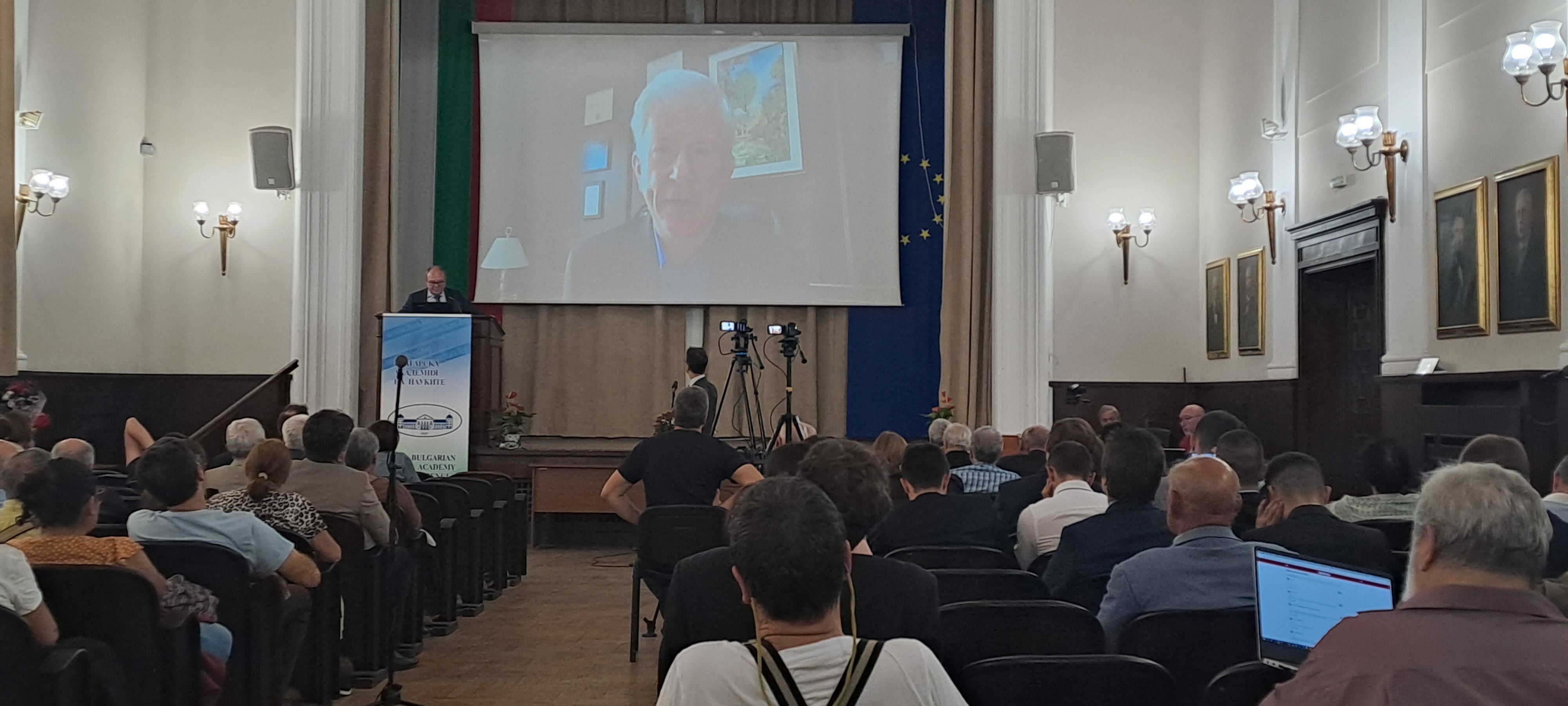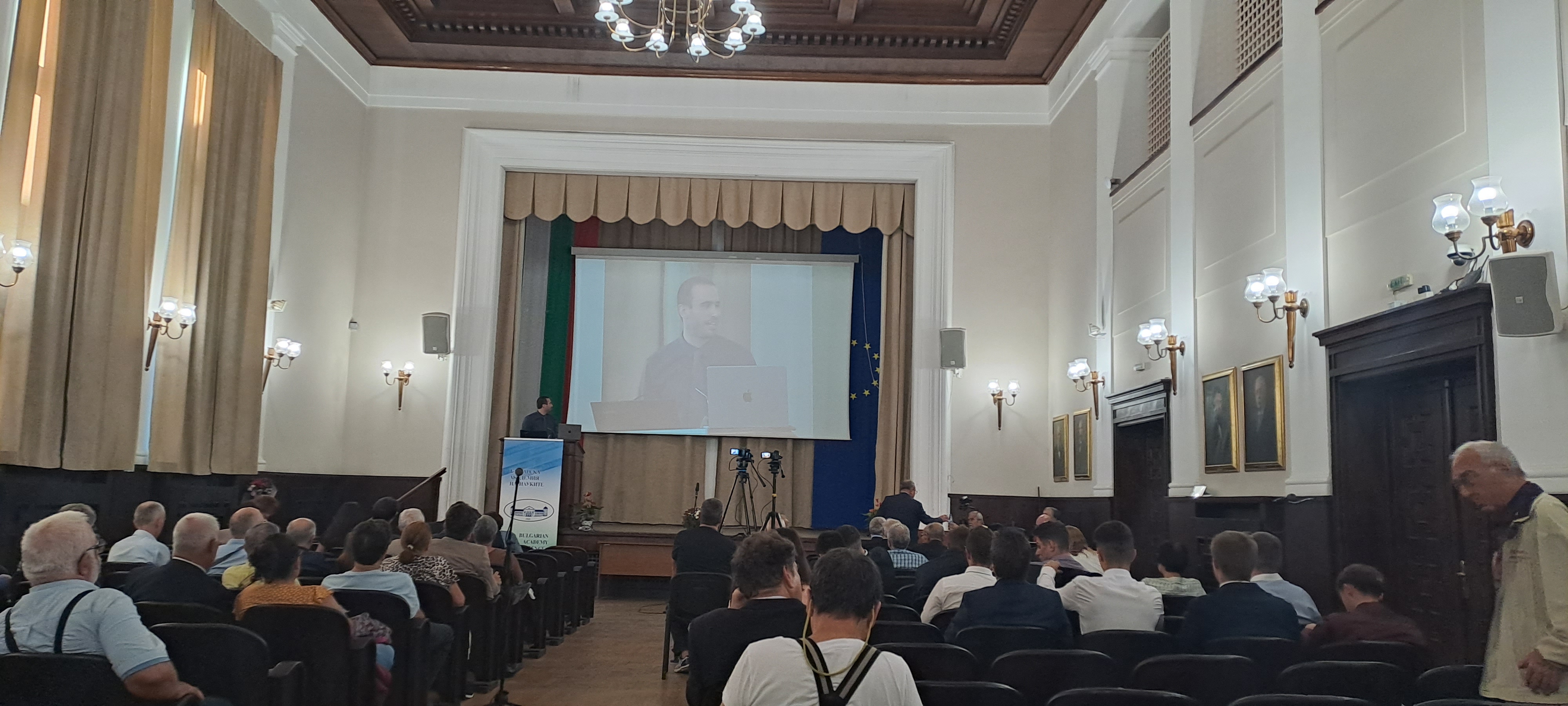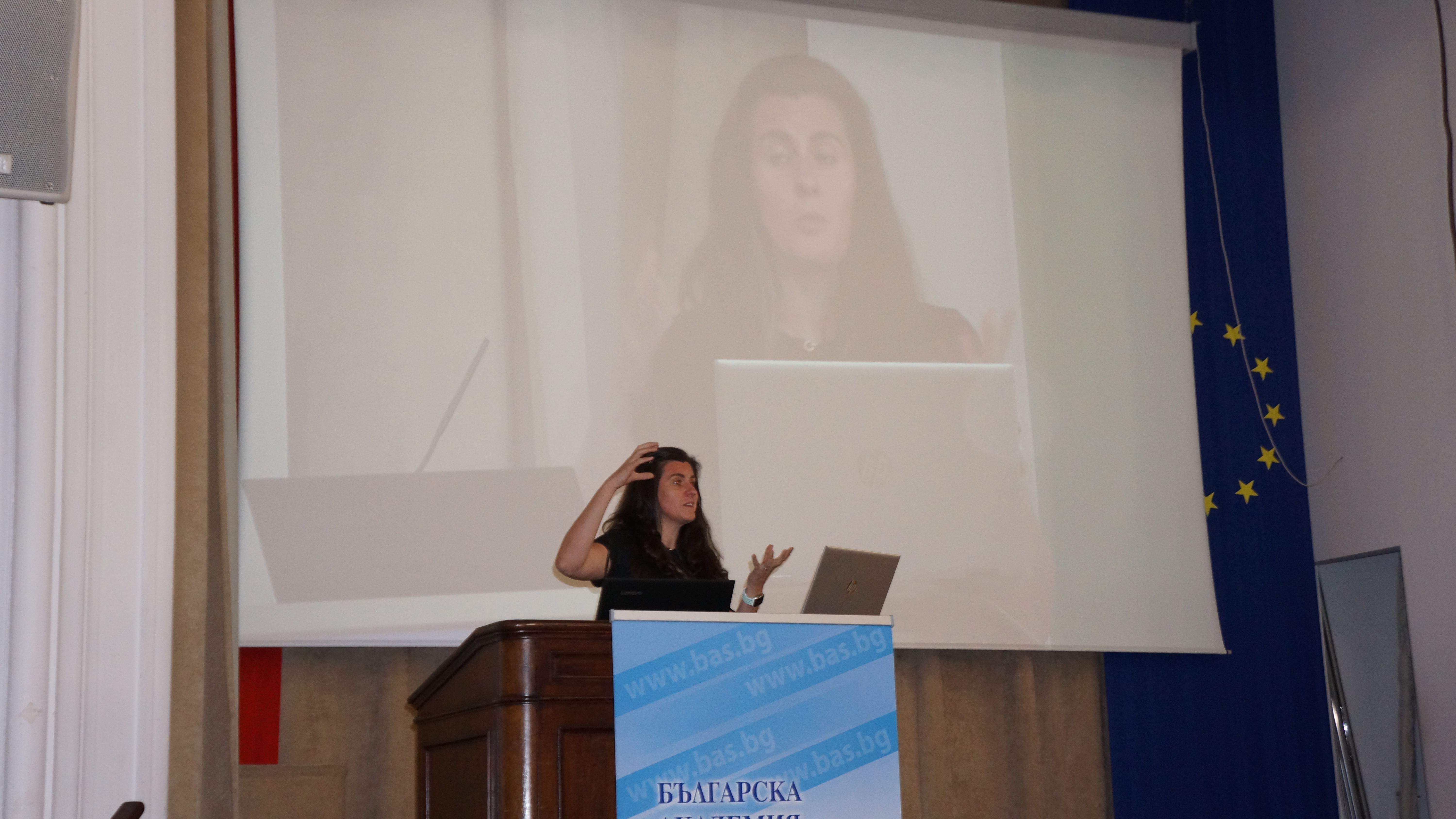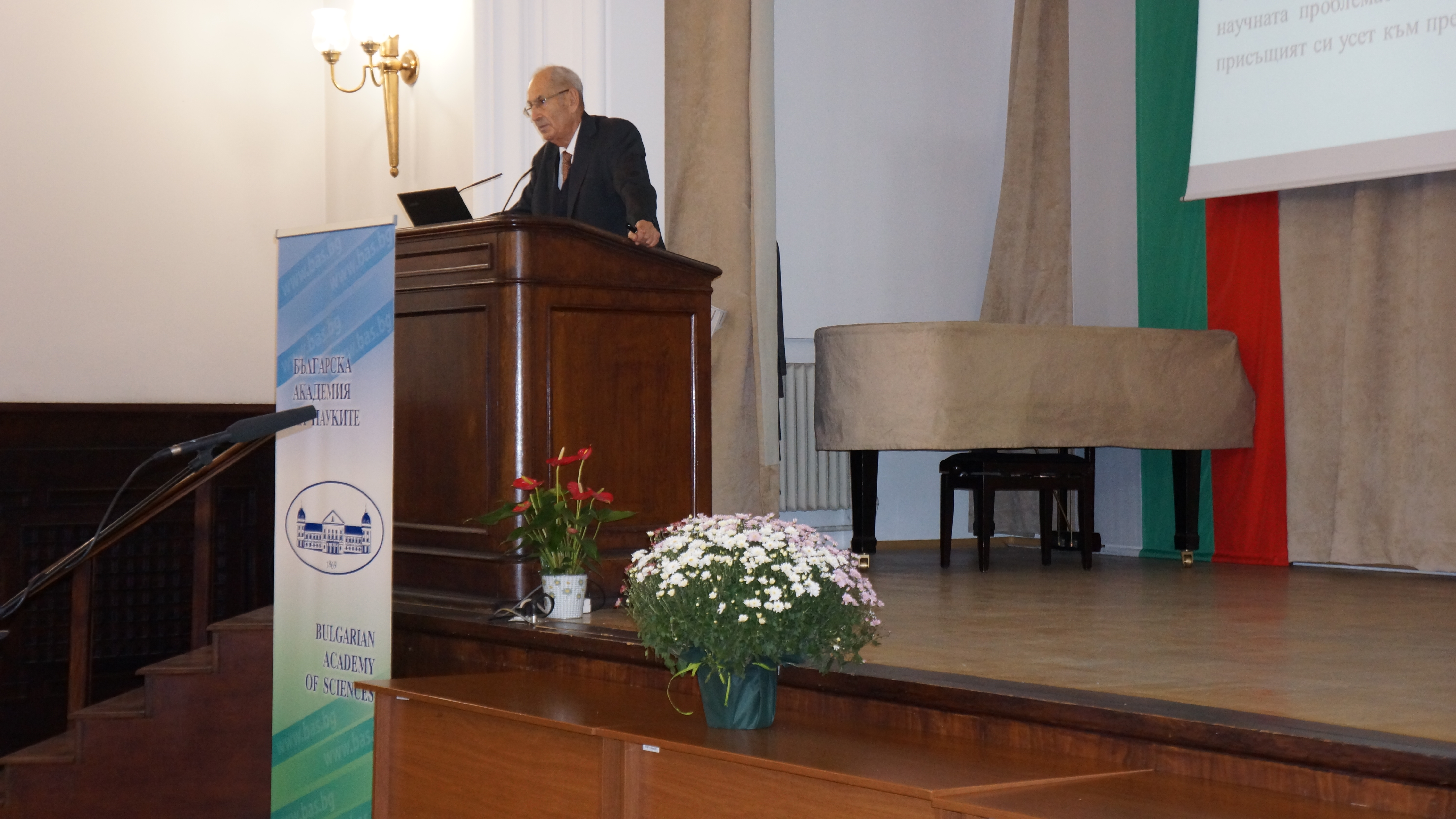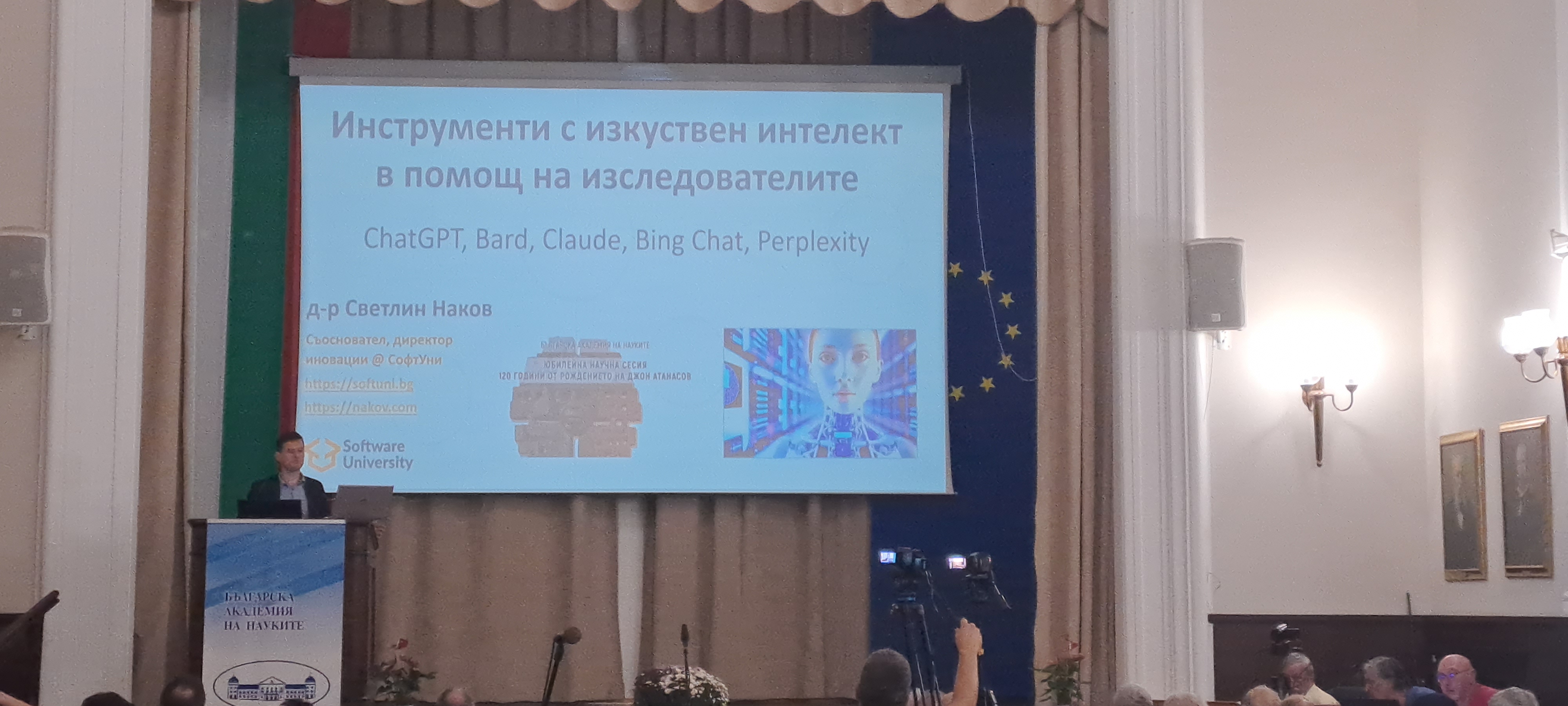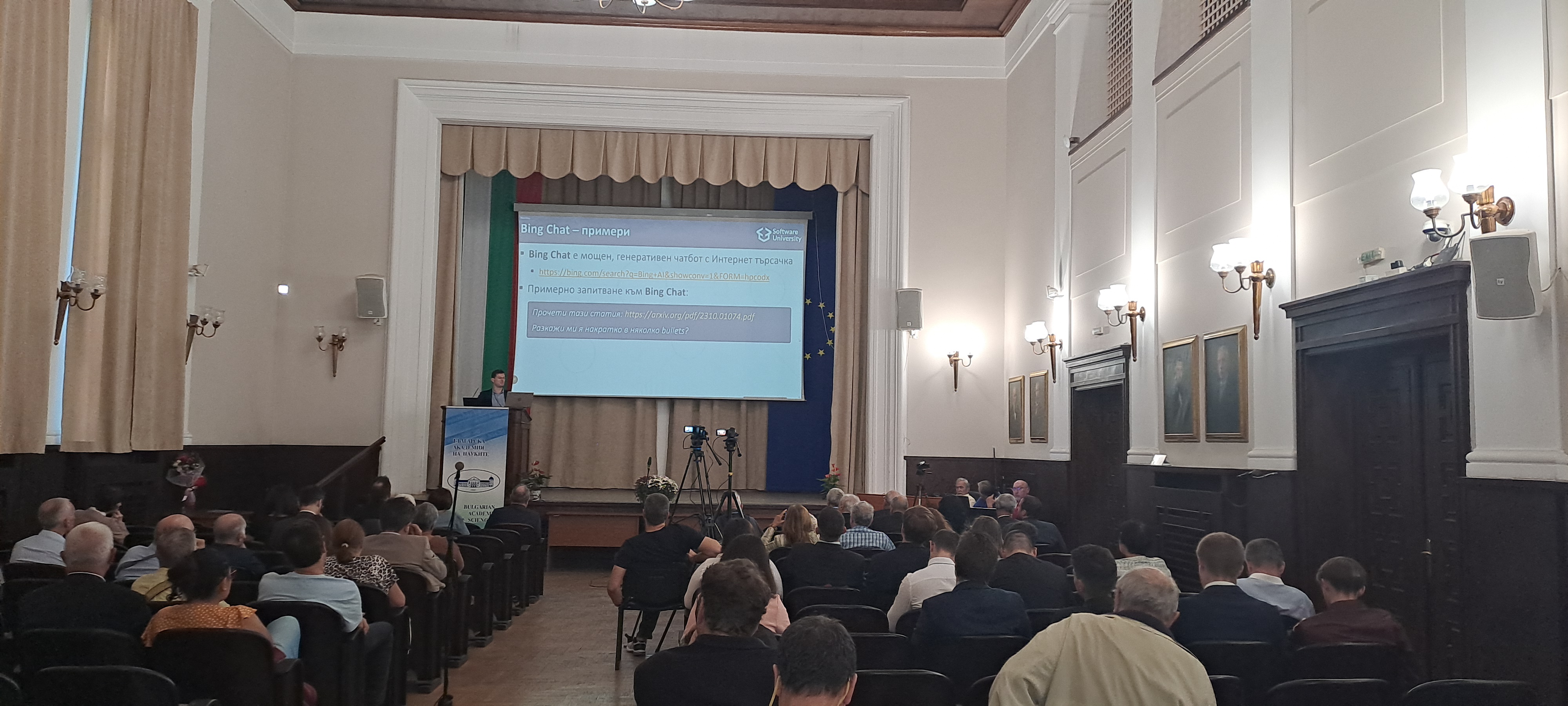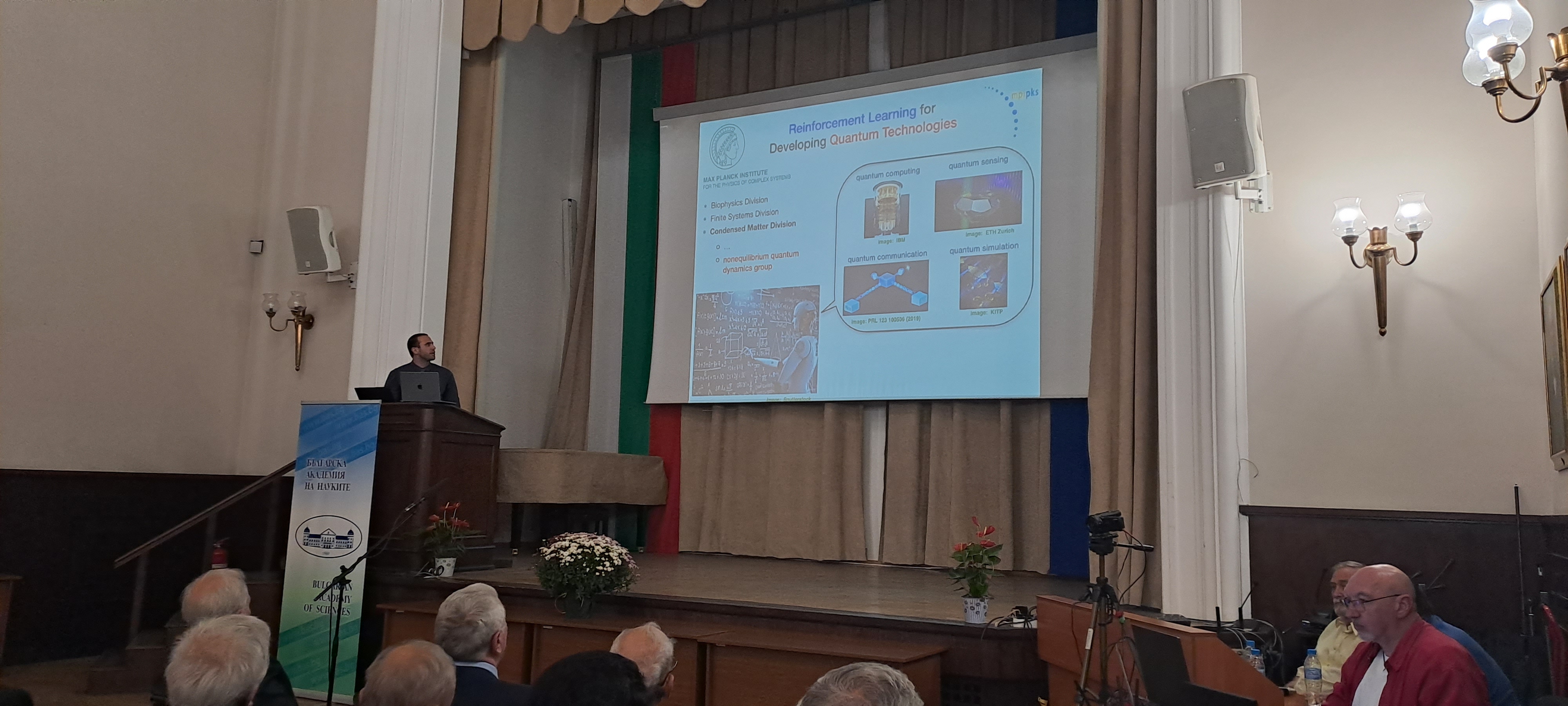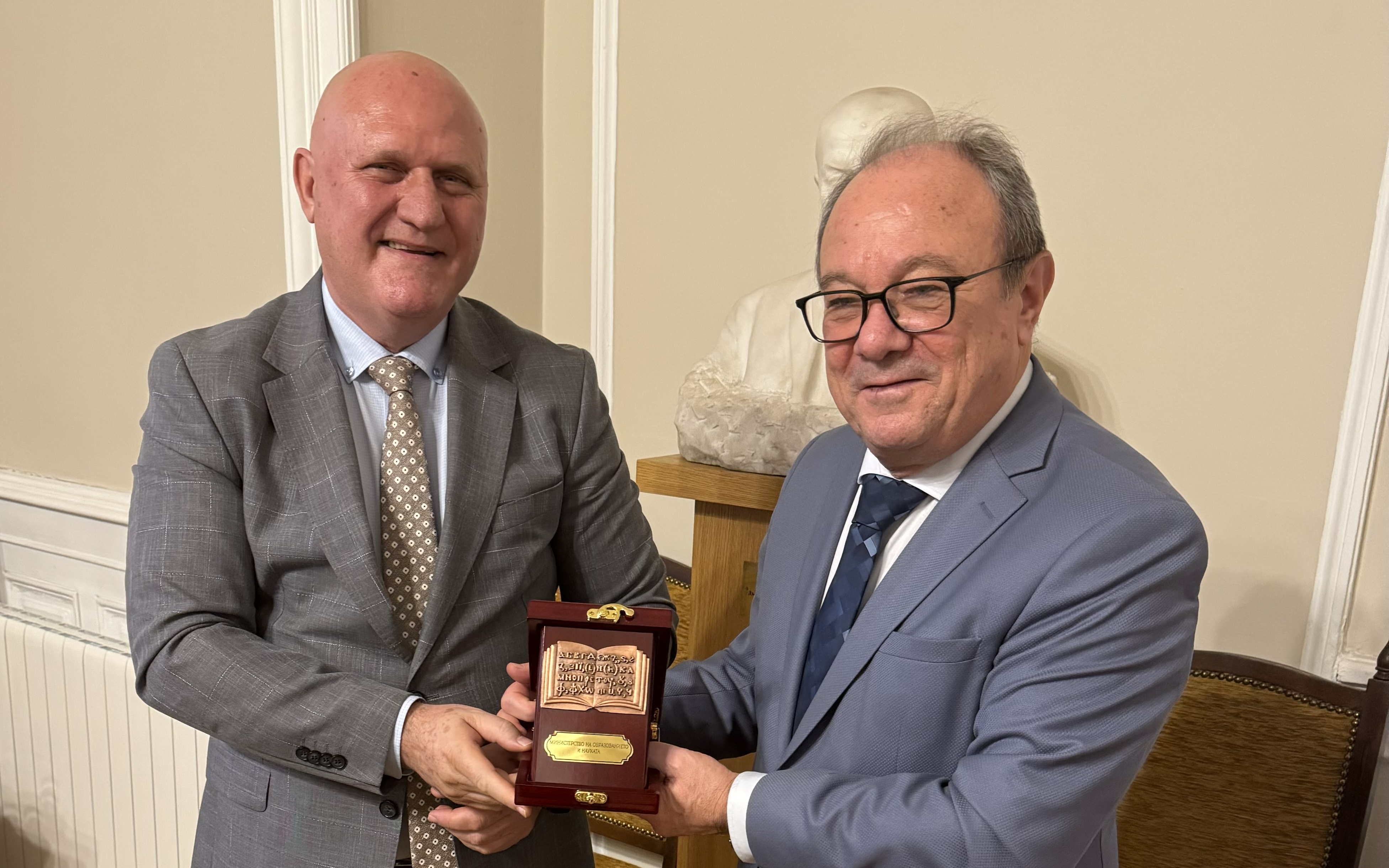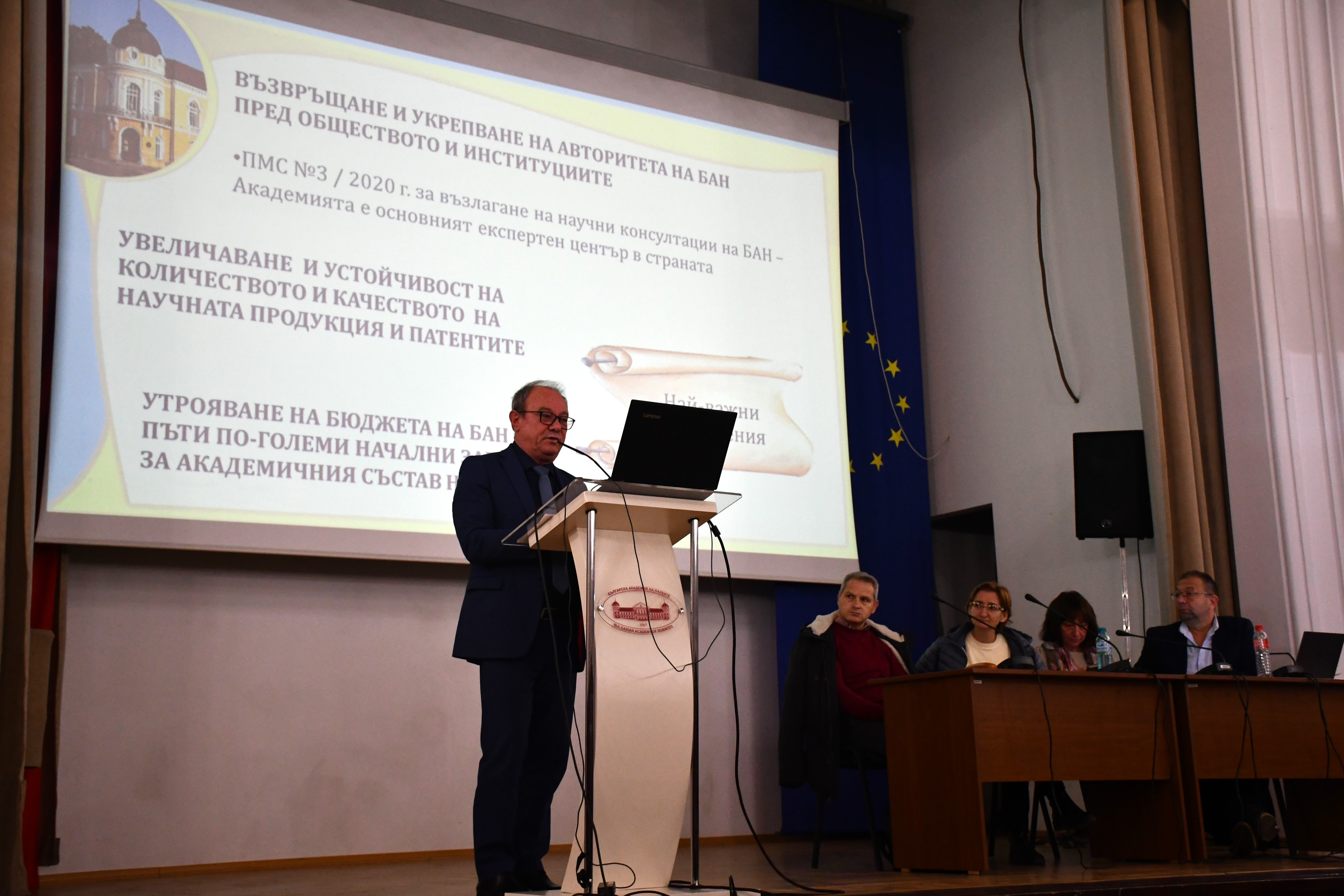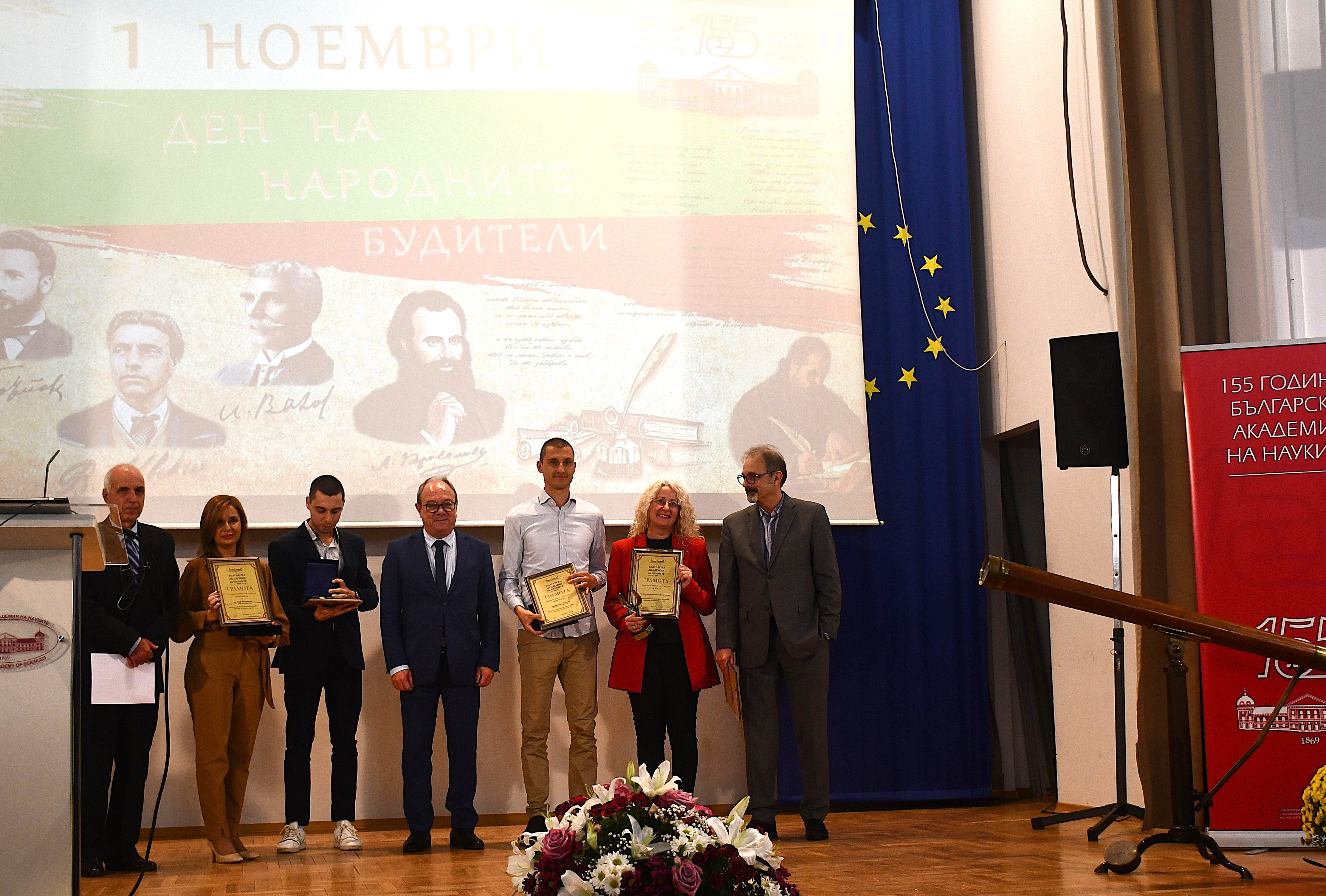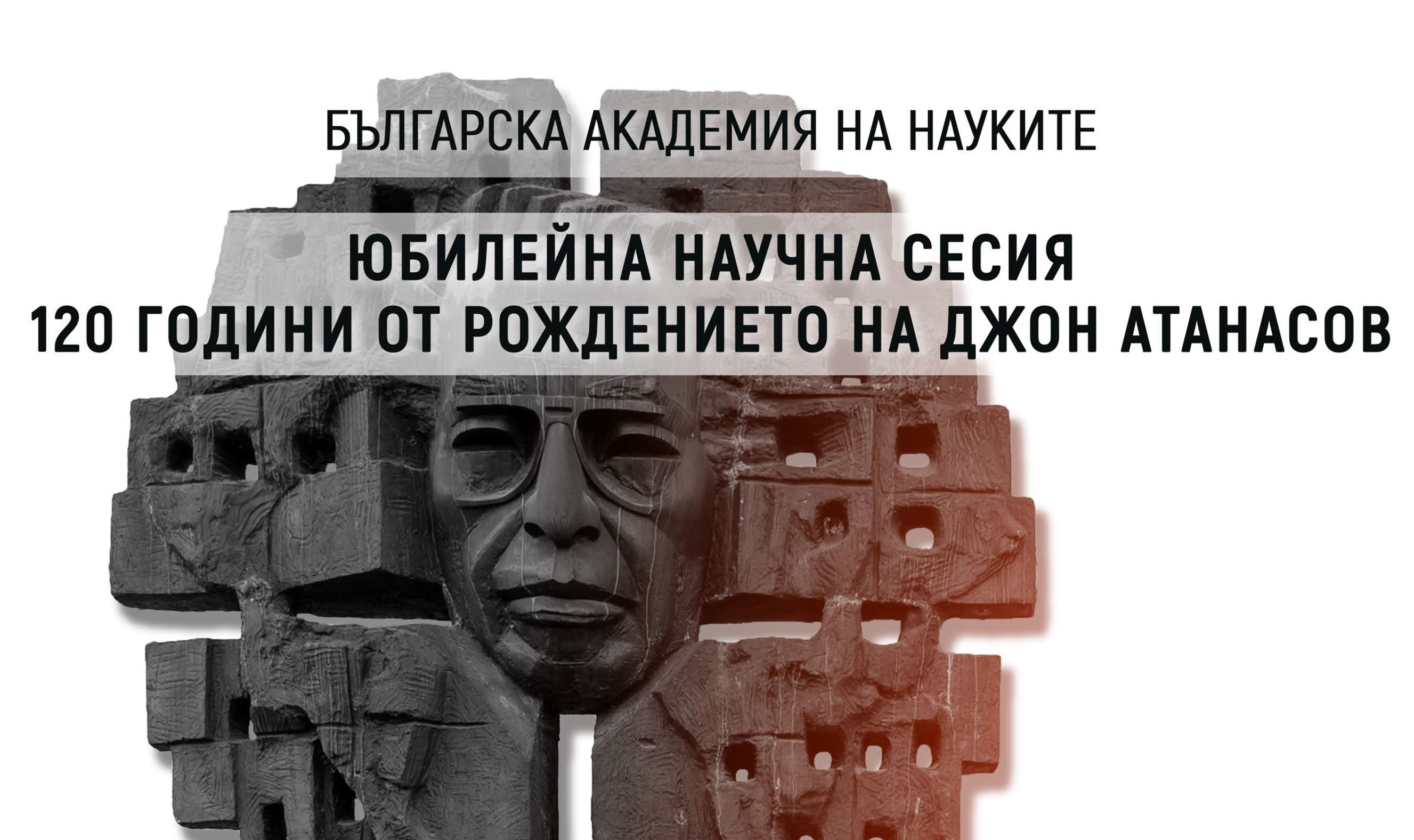 The Bulgarian Academy of Sciences celebrated the 120th anniversary of the birth of John Atanasoff, who created the first digital electronic computer, with a scientific session held at the “Prof. Marin Drinov” Hall of the Academy. The President of BAS Prof. Julian Revalski, Full Member of the Academy, opened the event by stressing that John Atanasoff’s invention was undoubtedly the greatest in technological terms of the 20th century.
The Bulgarian Academy of Sciences celebrated the 120th anniversary of the birth of John Atanasoff, who created the first digital electronic computer, with a scientific session held at the “Prof. Marin Drinov” Hall of the Academy. The President of BAS Prof. Julian Revalski, Full Member of the Academy, opened the event by stressing that John Atanasoff’s invention was undoubtedly the greatest in technological terms of the 20th century.
In 1983, John Atanasoff received the highest title for a foreign scientist and was elected a foreign member of BAS, said Acad. Revalski. We can only be proud that Bulgarian blood flowed in his veins and that his paternal lineage is Bulgarian, and that Bulgaria thus contributed to this great invention, which led to extraordinary progress not only in the field of technology, stressed in his speech Prof. Revalski.
During the scientific session at BAS, Acad. Kiril Boyanov made a presentation on “John Atanasoff – inventor of digital calculus”. Bulgaria was the first to recognize the contributions of John Atanasoff’s invention to the basic principles of digital calculus, the basis of modern computers, said Acad. Boyanov.
Acad. Kiril Boyanov, Georgi Alipiev and Acad. Blagovest Sendov towards the end of the 1960s discovered that John Atanasoff’s roots were most likely Bulgarian because they were not sure at the time. John Atanasoff was then invited and came to Bulgaria. He received recognition in the USA but much later than in Bulgaria.
At the scientific session, Prof. John Gustafson, a distinguished computer scientist and leader of the team that recreated the original Atanasoff-Berry computer, came online from the USA to talk about his work with the lecture “Ten persistent myths about Atanasoff-Berry computer”.
The session featured experiences shared by prominent computer science researchers and winners of the John Atanasoff Presidential Award – this year’s award winner Dr. Marin Bukov, Svetlin Nakov and Zornitsa Kozareva.
After the ceremony at the Presidential Palace, Dr. Bukov gave a presentation at BAS on “Applications of Reinforcement Learning in Developing Quantum Technologies”. Dr. Svetlin Nakov talked about the world of artificial intelligence (AI) for everyday life – ChatGPT, Bard, Claude, prompt enginering – new tools and how they can read scientific articles and answer questions on them. Dr. Zornitsa Kozareva shared her experience and achievements in the field of artificial intelligence.
The jubilee scientific session and the presentations can be watched on the Youtube channel of BAS


